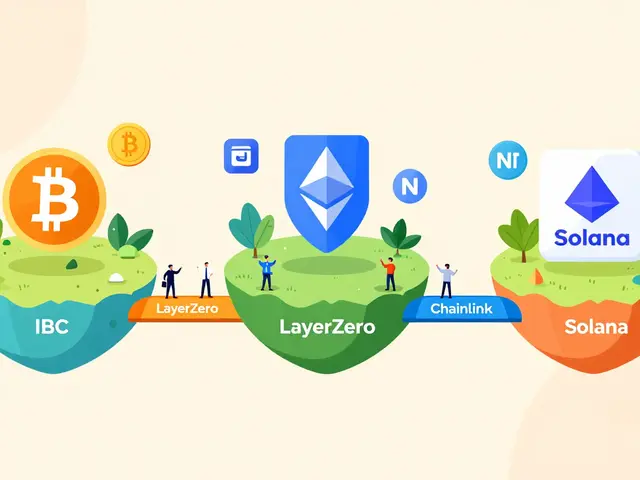Turkey crypto exchange license is the legal permission a crypto‑asset service provider must obtain from the Capital Markets Board (CMB) to operate a trading platform in Turkey. The framework, unveiled in March 2025 through two official communiqués, turned a previously murky environment into a structured set of rules that balance market growth with strict financial controls. If you’re eyeing the Turkish market, you need to know the capital thresholds, AML/KYC duties, foreign‑player limits, and the real‑world costs of staying compliant.
Key Takeaways
- Minimum paid‑in capital: 150 million TL for exchanges, 500 million TL for custodial services.
- Licensing authority: Capital Markets Board (CMB) - all documents must be filed in Turkish.
- Annual fee: 1% of total income to CMB + 1% to TUBITAK (combined 2%).
- AML/KYC trigger: every transaction > 15,000 TL requires full identity verification.
- Foreign entities can’t market or maintain a physical presence in Turkey without a local partner.
Regulatory Landscape at a Glance
Two communiqués published on 13 March 2025 set the foundation:
- Communiqué I (III‑35/B.1) outlines the founding principles for crypto‑asset service providers (CASPs).
- Communiqué II (III‑35/B.2) details operational procedures, capital adequacy, and compliance obligations.
The Central Bank of Turkey (TCMB) still bans using crypto for payments, but exchange operations are now clearly permitted under CMB supervision.
Who Issues the License?
The Capital Markets Board (CMB) is the sole licensing authority. Applications must be submitted through the CMB’s electronic portal, accompanied by:
- Corporate charter confirming a joint‑stock company structure.
- Proof of paid‑in capital (bank statements, notarized certificates).
- Fit‑and‑proper assessments for founders and key executives.
- Detailed AML/KYC policies approved by an independent compliance consultant.
All documents must be in Turkish; most foreign firms hire bilingual law firms in Istanbul to handle translation and liaison.
Capital Requirements & Financial Guarantees
Capital thresholds are the most noticeable hurdle:
| Service Type | Minimum Paid‑in Capital | Approx. USD (2025 rates) |
|---|---|---|
| Crypto Exchange | 150 million TL | $4.1 million |
| Custodial Service Provider | 500 million TL | $13.7 million |
| Comparison - Singapore | S$1 million | $740 k |
| Comparison - United Kingdom | £5 million | $6.3 million |
Unlike many emerging markets, Turkey’s capital floor sits in the middle‑ground: higher than Malta or Estonia, lower than the UK or Singapore’s most stringent tiers. The amount must be fully paid‑in before the CMB even reviews the application.
AML and KYC Obligations
Compliance is where many applicants stumble. The Financial Crimes Investigation Board (MASAK) holds sweeping powers to freeze accounts without a court order if suspicious activity is detected.
- Identity verification is mandatory for any transaction exceeding 15,000 TL (≈ $425).
- Both sender and receiver must be screened against Turkey’s sanctions list and the UN consolidated list.
- Real‑time transaction monitoring is required; flagged trades must be reported to MASAK within 24 hours.
- All trade data-including cancelled and unexecuted orders-must be stored for a minimum of five years.
Failure to comply can lead to license suspension, hefty fines, or outright revocation.
Foreign Participation Limits
Turkey’s framework is deliberately protective of domestic control. Non‑resident CASPs face two key restrictions:
- They cannot actively market crypto services to Turkish residents.
- They must establish a local joint‑stock subsidiary with Turkish shareholders holding at least 51% of voting rights.
Compared with Malta’s open‑door policy-where foreign entities can own 100% of a crypto company-Turkey’s stance can deter quick market entry but encourages local partnership models.
Ongoing Costs Beyond Capital
While the law does not list a fixed licensing fee, operational expenses add up quickly:
- Annual fee to CMB: 1% of gross revenue (excluding interest income).
- Annual fee to TUBITAK: another 1% of gross revenue.
- Compliance infrastructure: budgeting 10‑15% of total operating costs for a dedicated AML team, risk‑management software, and third‑party audit services.
- Technical costs: building a transaction monitoring engine capable of handling 10,000+ trades per second and integrating with Turkish banking APIs.
In practice, a mid‑size exchange generating 20 million TL in revenue will pay roughly 400,000 TL in regulatory fees alone each year.
Typical Timeline & Practical Steps
Preparing a successful application is a marathon, not a sprint. Most firms report a 6‑12 month lead time:
- Corporate structuring (Month 1‑3): Form a joint‑stock company, secure Turkish shareholders, open a capital‑locked bank account.
- Compliance blueprint (Month 2‑4): Draft AML/KYC policies, appoint a compliance officer, procure a monitoring solution.
- Documentation (Month 4‑6): Gather board CVs, capital proofs, internal control manuals, and cyber‑security audit reports.
- Submission (Month 6‑7): Upload files to the CMB portal, pay the provisional filing fee, and request a formal review.
- Regulator review (Month 7‑10): Respond to CMB queries, possibly provide additional documentation or on‑site inspections.
- License issuance (Month 10‑12): Receive the official license certificate, publish it on the exchange website, and start operations.
Missing any of these steps-especially the fit‑and‑proper test for executives-can add months of delay.
Common Pitfalls & Pro‑Tips
- Under‑estimating capital: The 150 million TL floor is non‑negotiable; investors often assume a lower amount is acceptable.
- Ignoring language requirements: All filings must be in Turkish; using a reputable bilingual law firm saves headaches.
- Skipping sandbox testing: Deploy your AML engine in a test environment before the CMB audit to catch false‑positive thresholds.
- Neglecting local banking relationships: Turkish banks are cautious about crypto; securing a partner early eases fiat on‑ramps.
- Overlooking political risk: Recent high‑profile detentions (e.g., ICRYPEX founder) signal that compliance breaches can attract regulatory attention beyond the financial realm.
Future Outlook
Since the February 2025 full‑AML rollout, authorities have tightened enforcement, shutting down 46 unlicensed platforms in July 2025, including PancakeSwap’s Turkish proxies. While the current regime is strict, analysts expect gradual adjustments:
- Possible reduction of capital thresholds if foreign investment remains low.
- Clarification on the scope of “marketing” for overseas entities.
- Alignment with the EU’s MiCA framework, potentially harmonizing reporting standards.
Staying ahead means monitoring CMB circulars, maintaining a proactive compliance culture, and preparing for periodic audits.
Frequently Asked Questions
What is the minimum capital needed to launch a crypto exchange in Turkey?
The law requires a paid‑in capital of at least 150 million Turkish Lira (about US $4.1 million) for a trading platform. Custodial services need 500 million TL.
Which authority grants the crypto exchange license?
The Capital Markets Board (CMB) is the sole licensing body. Applications are submitted through its online portal.
Can a foreign company operate a crypto exchange without a Turkish partner?
No. Non‑resident CASPs must create a Turkish joint‑stock subsidiary with at least 51 % local voting shares and cannot actively market to Turkish users.
What are the ongoing annual fees after obtaining the license?
Licensees pay 1 % of total income to the CMB and another 1 % to TUBITAK, plus the cost of maintaining AML/KYC systems, audit services, and a dedicated compliance team.
How long does the licensing process usually take?
Most applicants need 6‑12 months, depending on corporate restructuring, documentation completeness, and regulator responsiveness.




Comments (15)